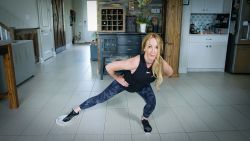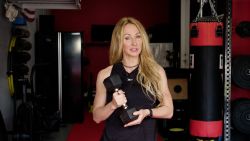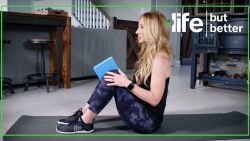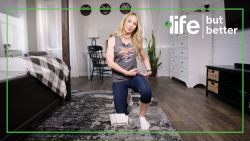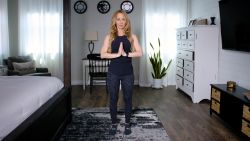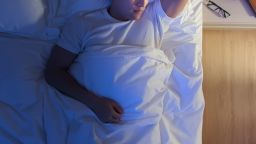Sign up for CNN’s Adulthood, But Better newsletter series. Our seven-part guide has tips to help you make more informed decisions around personal finance, career, wellness and personal connections.
Beliefs developed when young about what is or isn’t healthy can follow us for a lifetime, experts say. But what if those beliefs don’t hold up to scientific scrutiny?
Here are eight assumptions about diet, exercise and sleep that fail to meet the sniff test.
Myth No. 1: Popular diets are everywhere so they must work
Lose weight fast. It’s enticing, but the typical fad diet – even the more established ones, such as keto – emphasize limiting nutritional intake, often by banning entire food groups. Keto, for example, outlaws grains, legumes and fruits except for a handful of berries. Lopping off important micronutrients isn’t healthy, and restrictive diets “tend to fail in the long run,” according to the US Centers for Disease Control and Prevention.
“That type of restriction in the long term leads to weight gain, not weight loss, and it often leads to weight cycling,” said Nina Taylor, education manager at the National Alliance for Eating Disorders.
Going on and off a diet is called weight cycling, or yo-yo dieting, and studies have linked that eating pattern to higher body fat, blood pressure and cholesterol, all of which raises the risk of coronary heart disease and sudden cardiac death in women.
Eating a plant-based diet, watching sugar intake and limiting mindless eating are great ways to add years to your life, research has shown.
Myth No. 2: It’s OK to take your smartphone to bed
Who doesn’t want to check their social feeds one last time before lights out? But research has linked nighttime overuse of smartphones to trouble falling asleep, reduced sleep duration, daytime tiredness and even mood disorders.
When you use your phone, you’re flooding your eyes with blue light, which cuts off production of melatonin – that’s the hormone that regulates your body clock. Experts suggest banning any LED spectrum light for a full hour before sleep.
Bottom line: Don’t bring your cell phone and its harmful blue light to bed. Use an old-fashioned alarm clock to help you wake up.
Myth No. 3 Social media can inspire you to diet and exercise
Research shows young people believe turning to fitness and diet videos on TikTok, Facebook or other social media will inspire them to be a better version of themselves, Taylor said.
“They believe that will motivate them to work out or diet,” Taylor said. “However, what that can lead to is body dissatisfaction – social comparison and a lot of concerns about body and weight. Those are all risk factors for eating disorder development.”
Experts fear body dysphoria may have increased during the pandemic as more young people turned to social media while also faced with social isolation and disrupted routines, Taylor said.
“Disordered eating is often a coping mechanism,” she said. “It’s a way to feel in control and deal with tough emotions.”
Intuitive eating is a natural way of listening to the body’s cues on hunger and fullness, which experts believe sets up a more healthy way of eating. Some call it the “anti-diet.”
Myth No. 4: Hitting the snooze button helps you get more sleep
As morning approaches, your body is naturally nearing the end of its last rapid eye movement, or “dream” cycle. Hit that snooze button, and your brain falls right back into a new dream cycle, experts say. When the alarm goes off a few minutes later, you’re likely to be in the middle of that cycle and wake up groggy. You’ll stay groggy longer, too.
Pro tip: Put the alarm on the other side of the room, so you have to get out of bed to turn it off. (And no, you can’t tell Google or Alexa to turn it off. That’s cheating.)
Myth No. 5: You can lose belly fat with crunches
In reality, exercise burns fat all over the body, not just the body part your workout targets.
“You can do an exercise to increase the strength of a muscle, but you can’t spot reduce to remove fat,” said Dr. Angela Smith, a former president of the American College of Sports Medicine.
Experts suggest increasing cardio to burn fat. Strive for a balanced fitness routine by varying workout intensity to include high- and low-intensity training.
Myth No. 6: It’s best to stay in bed with eyes closed when you can’t sleep
Staying in bed more than 20 minutes if you can’t sleep is one of the worst things you can do, according to sleep experts, because it trains your brain to associate the bed with a lack of sleep. Doing so can lead to chronic insomnia.
“It’s counterintuitive, but spending time in bed awake turns the bed into the dentist’s chair,” Michael Grandner, a clinical psychologist and sleep expert, told CNN previously.
Instead, get up and do something boring, such as folding laundry, until you’re sleepy. Make sure you keep the lights dim, and don’t check your smartphone or laptop.
Myth No. 7: I have to work out or diet all the time to change my body type
There’s a belief that exercising or dieting all the time can change your basic body type, Taylor said. “Especially among younger age groups, the feeling is ‘if I just dieted better, or if I just exercised more, I would get my body to look a certain way.’ The reality is there’s a large range and diversity of body types that are all normal and healthy.”

Genetics are a key to how exercise might affect your body, Smith said. “If your parents are both over 6 feet tall, you’re probably not going to be successful as a gymnast, for example,” she said. “Some of this might be determined by muscle shape and size, and some of it might be determined by hormonal balances that you have been dealt at birth.”
The idea everyone can lose or gain weight or bulk up to some ideal body image doesn’t make sense, Taylor said. “There will always be body diversity. After all, we would never say, ‘You should be taller,’ or ‘You should be shorter,’ right?”
Myth No. 8: Bodybuilding supplements advertised on social media really work
High school and college-age youth may feel they need weight training supplements after seeing products advertised on social media, said Dr. John Xerogeanes, chief of sports medicine at the Emory Orthopaedic & Spine Center and professor of orthopaedics at Emory University School of Medicine in Atlanta.
“The biggest issue I have with my patients is supplements,” Xerogeanes said. “Some influencer is marketing something that’s complete garbage, and suddenly the kid says, ‘Hey, I can take this supplement, and it’s gonna give me abs.’”
That’s a problem, he said, because the US Food and Drug Administration doesn’t regulate the supplement industry.
“It may say one thing on the label, but you really don’t know what’s in it,” Xerogeanes said. “The manufacturers can put other minerals or even stimulants in their mix, which is why some of the high school and college athletes pop a positive on drug tests.”
When he works with college teams, he said, “I tell them, if you’re going to do any supplement, we need to see that supplement, and we need to have it independently tested.”
Research shows that if you eat a healthy, well-balanced diet, you are not likely to need supplements unless you are pregnant, elderly or have a specific dietary limitation.



